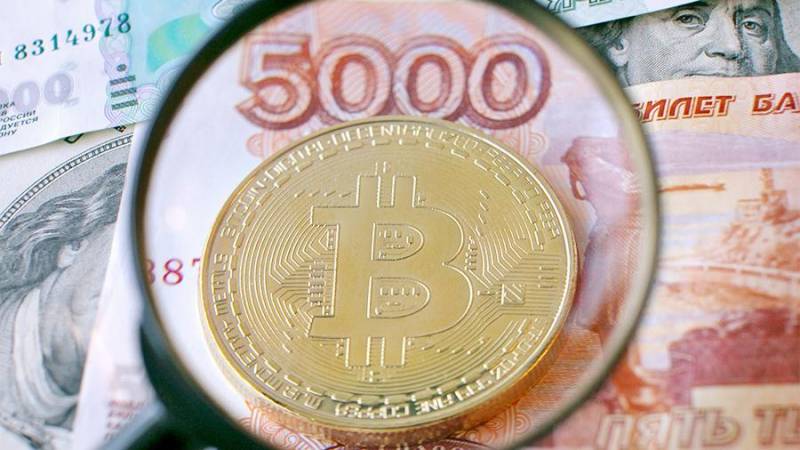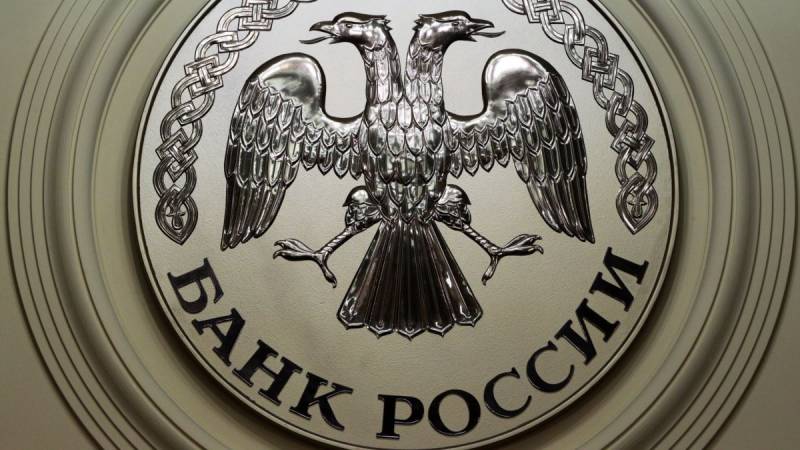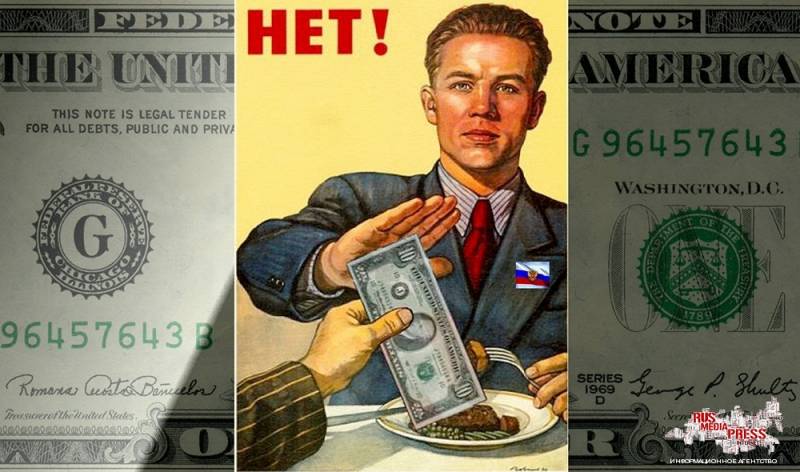Strong ruble - two sources and three components

The independence of the Central Bank is nothing more than appearance
We will not get tired of repeating that the stability of the ruble in the conditions of the NWO is by no means some kind of achievement, but simply a cruel reality for our opponents. And our currency helmsman - the bank, which is listed not only as the Central, but also to the surprise of the whole world, not only civilized, but also independent, has a very indirect relation to this.
Approximately, like a supermarket checkout to how full it is, because it's all about the goods, the skill of sellers and the solvency of buyers. So, for the role of a “seller” of rubles, the Central Bank of the Russian Federation, even together with the Ministry of Finance, is currently categorically not suitable.
Let these be state structures, but it is the economic viability of the state as such that determines everything. More precisely, the whole point is the uninterrupted, although at the moment not in all respects, successful operation of the national economy.
The decrease in activity in a number of industries is almost completely offset by the heating up of the defense industry, as well as those who are export-oriented, primarily in the mining and agricultural sectors. You can consider that they are two sources of stability for the ruble, although the actual influx of money comes from the tax service and from customs.
The almost ubiquitous transition of payments for our export goods to rubles has relieved the ruble of the need to regularly turn around to foreign market conditions. The ruble emission remains under the strict control of the same Central Bank of the Russian Federation, but again, the point is not in it, but in the absence of excess demand for rubles in the country.
The ruble remains expensive
There is no demand, precisely because the ruble remains very expensive in terms of loan interest. At the same time, the ruble is now slowly, but, alas, steadily declining against the dollar and the euro, primarily because of the need to maintain at least the appearance of a balanced budget.
At the end of last year and the beginning of this year, as you know, it sank a lot, and only a significant reduction in import costs saves. However, they will be required in any case, even for almost 100 percent localized defense enterprises.
Nevertheless, with the current trends in Russian exports, which are in demand almost more than before the NWO, it is more likely that we have to worry about a completely different matter. About how the state can be credited within the country, in view of the almost complete post-condition of an acceptable alternative to Western, more precisely, transnational banks.
Iran, China, India and even Brazil, more precisely, credit institutions from these countries, set conditions that are harder, not only for former Western creditors, but also for Russian ones. However, in relations between the authorities and the latter, there is at least an opportunity to use the administrative resource in order to neutralize the negative from the excessively expensive credit ruble.
Some depreciation of the national currency in this case is best viewed as a competent stock exchange game of the same Central Bank, here it cannot but be given its due. However, as you know, the Bank of Russia, like any other Central Bank, is deprived of the right to stock exchange games, but no one can prohibit manipulating the exchange rate through shell or even controlled banks.
We have one course - right?
In the situation we have described, many make negative forecasts with a rate of 100 or even 150 rubles to the dollar, although the majority of the population hardly cares about this, so long as prices do not jump. In response, a number of analysts, moreover, from relatively independent structures, rightly consider forecasts with a sharp fall in the ruble exchange rate to be absolutely unrealistic.

The current situation cannot be compared either with the spring of last year, or with episodes of a strong depreciation of the ruble in 2014–2016. Almost everything there was tied to geopolitics, which is now simply taken into account as the main factor, nothing more.
The main thing that the authorities managed to achieve during the year of the SVO in the financial sector was to bring down the wave of capital outflow from the country. However, it seems that no one really knows what to do with this capital inside the country, in addition to investing in defense orders.
If the first of the three components of the stability of the ruble - export earnings, does not cause doubt or concern, then the second - receipts from within the country, in this case, cannot but worry. If you don't invest anywhere, you won't get anything.
Almost no one in the real sector has their own funds, with the exception of the nuclear industry and, perhaps, the space industry, although everything is classified there, and banks continue to behave like a dog in the manger. One should not be surprised if, as a positive example, they are faced with the Central Bank of the Russian Federation and its either a branch or a satellite - Sberbank.
Third tie-down
It is unlikely that anyone will be surprised that in the role of such, forgotten, few of the "great" interesting, is an ordinary consumer. But if he does not incur his hard-earned money not only in supermarkets, but also in banks, absolutely nothing will be able to move.
It's no secret that Russia is very rich with far from the richest population. Someone can tell us as much as they like about 10, maximum 15 percent of the poor. In fact, much more. But those same 0,02 percent of the too rich should not be taken into account - in fact, little depends on them.
Although some of them still consider themselves almost the saviors of the Fatherland, because they are the ones who drive the “locomotives of the economy”. It is a paradox, but it is precisely in this, that is, in the almost rampant poverty of the population now, that it, the economy, is saved.
Contrary to all monetary theories with the notorious effective demand, and even contrary to socialist practice, the same one - cinema, wine and dominoes. It justified itself for many years, people, although not all, could even retire with good opportunities for cultural leisure, up to traveling all over the country.
Russia is now again in a situation where its main advantage is not even the abundance and cheapness of resources, with the latter just in abundance, but the low cost of human resources, including guest workers who allegedly take other people's jobs.
This is on the "construction sites of communism", or what? We do not believe, and practice confirms that as soon as there is a chance to replenish personnel from within Russia, this is immediately done. Overhead costs are less.

Without SWIFT and without dollar
Another thing is that the real shortage of personnel in the country remains simply frightening, and now also the NWO people, and quite qualified ones, are being sucked out ruthlessly. Do you really think about it, and is it not then that the pension reform was started, so as not to remain in an open field now?
Let's not argue, since the beginning of the NWO, the Russian monetary authorities continue to demonstrate enviable professionalism. Being under unprecedented pressure from the West, left without SWIFT, with almost complete currency freedom, which, by the way, they themselves tripled, it’s cool not to let the ruble fall.
Although, again, it turns out that it is not necessary to print extra rubles, the economy somehow manages without their excess. There are exports, imports have fallen, the majority is afraid to export the currency. De-dollarization, which seemed just a slogan, does not affect only reserves, and it may be better that way: falling into the bondage of the yuan will be more terrible than the dollar.
The dollar is universal, but the yuan is the brainchild of the People's Bank of China and the Central Committee of the Communist Party of China. In the meantime, the fewer dollars, the calmer the ruble feels. No, it is, alas, impossible to guarantee it from a collapse if everyone and seriously yell at us. However, in this case, the same Central Bank of the Russian Federation will simply have to introduce the state digital ruble and even, “a liberal’s nightmare,” to fix the exchange rate.
But first, in the event of a really strong depreciation of the ruble, the Bank of Russia will have to raise the key rate. Otherwise, it is difficult, even impossible, to contain the acceleration of inflation. The inevitable subsequent increase in deposit rates and higher yields on government bonds will narrow the money supply to a minimum.
In order for the US dollar to jump to 100 rubles and above, something too negative must happen, although then - you know what. However, a pandemic of a completely different scale may also happen, and a drop in oil prices to 15 or even 10 dollars per barrel, which is hard to believe.
Information